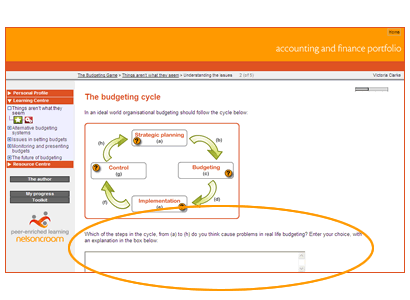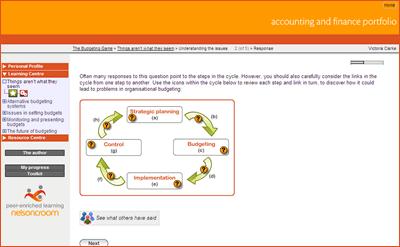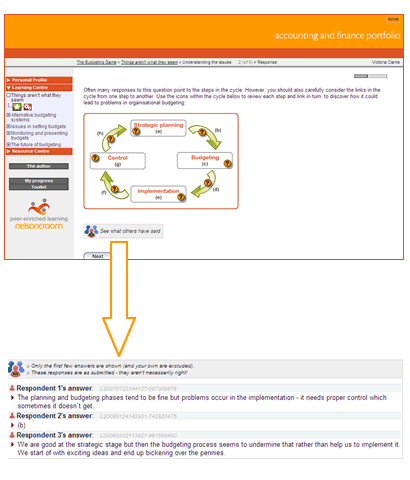Peer-enriched Learning

Stimulate intelligent debate and dialogue amongst your learners with our peer-enriched learning courses. Covering topics including managing the recession, ethics and budgeting these courses are topical, practical and highly relevant to today’s changing market.
We believe that learning works best when it engages and motivates people and that professionals should be in charge of their own professional development. Peer-enriched learning combines this philosophy with some of our web 2.0 tools. The result is a powerful approach to embedding new ideas which promotes debate and provides a valuable and evolving resource of professional knowledge and experience.
What’s different about peer-enriched learning?
Peer-enriched learning courses are focused on a collaborative learning approach. They take a topic, such as budgeting, where there is no right or wrong approach or comprehensive answer, and encourage learners to think about their own techniques and application, share their knowledge and experience and to learn from their peers.
In contrast, our technical and business skills courses provide a more traditional learning experience, enabling professionals to get to grips with a new subject or refresh their skills in more familiar topics. These courses are in-depth and combine a number of different learning activities to facilitate the acquisition of knowledge, to change behaviour and to provide methods of application in the workplace.
How does the learning work?
The learning takes place in three ways:
- Self reflection
- Learning from the expert
- Learning from peers
Self reflection: Learners are first asked a question. They consider the question and provide a response based on their own experiences or opinions. In this first stage of learning, the learner considers their own perspective.

Learning from the expert: When they submit the answer, they receive feedback. This might be in the form of a model answer or a series of learning points. In this second stage of learning, the information is provided by the author.

Learning from peers: Finally, the learner is offered the opportunity to see what other learners answered to the question. This third stage helps expand the learning, offering other perspectives and providing a way for the learner to connect with others that have had similar experiences.

| What courses are available?
Ethical Issues for Accountants |
Login to use, buy or try
To purchase a course or to try a free demo please logon to our e-learning portal.
If this is your first visit, click here to register.
Returning users, please enter your details below to logon:

